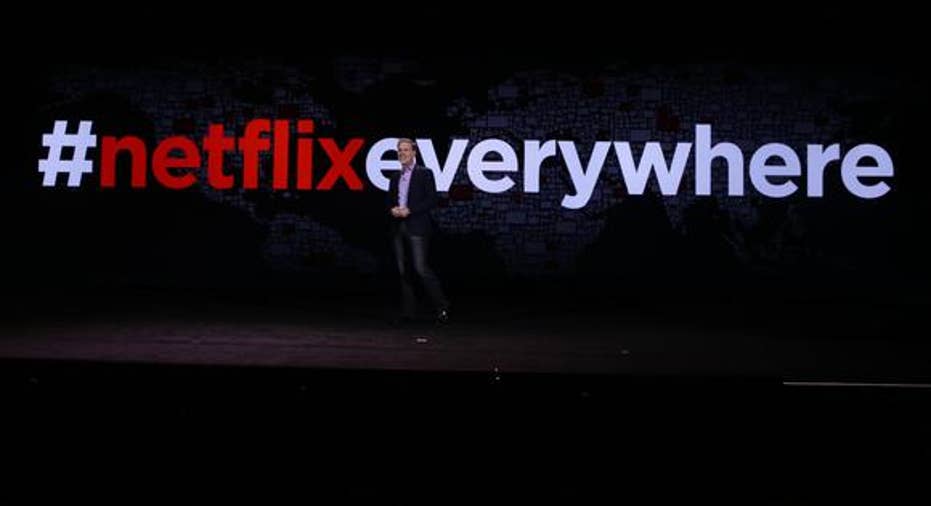Netflix's Global Expansion Is Suddenly Near Completion

Reed Hastings presenting at CES 2016. Source: Netflix.
Less than a year after unveiling plans to expand from 50 countries to 200, Netflix finds its global expansion suddenly near completion. CEO Reed Hastings announced at CES that it's launching in 130 new countries immediately and is now available in 190 countries. Originally, Netflix indicated that it would take two to three years to complete its global expansion. The only major country missing from Netflix's list is China, but it's still exploring its options in the world's largest Internet market.
The unexpected announcement sent Netflix's stock price climbing higher, as the long-term road map is suddenly pushed forward several quarters. But let's examine the financial impact of the sudden expansion that more than triples the number of countries in which Netflix operates.
Content budgetNetflix has been moving toward licensing content on a global basis over the past year and a half or so. Very few third-party productions are willing to license their content globally because of several factors, including existing licensing deals abroad, so many markets launched with sparse content catalogs with mostly Netflix originals.
But Hastings says catalogs will expand, with Netflix curating content for each region. "From today onward, we will listen and we will learn, gradually adding more languages, more content, and more ways for people to engage with Netflix," said Hastings during his CES keynote.
That expansion is sure to stretch the company's already massive $6 billion content budget ($5 billion on a P&L basis) for 2016. Investors should expect Netflix to spend what it needs on content to grow its subscriber base quickly in these new markets, offsetting slowing subscriber growth in the United States. Look for more insight during the company's upcoming earnings call, but don't be surprised if the content budget increases.
Marketing expensesOn top of spending on content, Netflix will also have to spend significantly on marketing. The company previously slated $1 billion for marketing expenses in 2016, but with 130 countries to offer free trials and promote the service to, that expense could be higher as well.
Netflix's marketing expenses as a percentage of revenue in the United States are much lower than its international markets. It's simple to see why: The U.S. has 42 million paid subscribers, compared with 24 million abroad. The U.S. has reached scale, allowing it to produce healthy contribution margins. But scaling 130 countries at once will undoubtedly send the international contribution margins plummeting over the next few quarters as Netflix works to scale.
Rolled up into marketing are Netflix's free trials, which don't cost Netflix directly, but cost it indirectly in the cost of delivering the service. Free trials as a percentage of total subscribers are naturally highest right after Netflix launches in a new country. Launching in 130 countries at once will cause a spike in free trials that will increase Netflix's cost of revenue in its international operations.
So, is this good news?For long-term investors, this is great news. Netflix just accelerated its global expansion dramatically, which means it can move toward making its international operations profitable on a contribution margin basis. In the short term, however, it will cause Netflix's expenses to increase rapidly, while revenue will trail behind. That means short-term pain and potentially revised outlooks.
Considering this has been part of the plan all along, however, the sooner Netflix gets into a market, the sooner investors can see the benefits.
The article Netflix's Global Expansion Is Suddenly Near Completion originally appeared on Fool.com.
Adam Levy has no position in any stocks mentioned. The Motley Fool owns shares of and recommends Netflix. Try any of our Foolish newsletter services free for 30 days. We Fools may not all hold the same opinions, but we all believe that considering a diverse range of insights makes us better investors. The Motley Fool has a disclosure policy.
Copyright 1995 - 2016 The Motley Fool, LLC. All rights reserved. The Motley Fool has a disclosure policy.



















